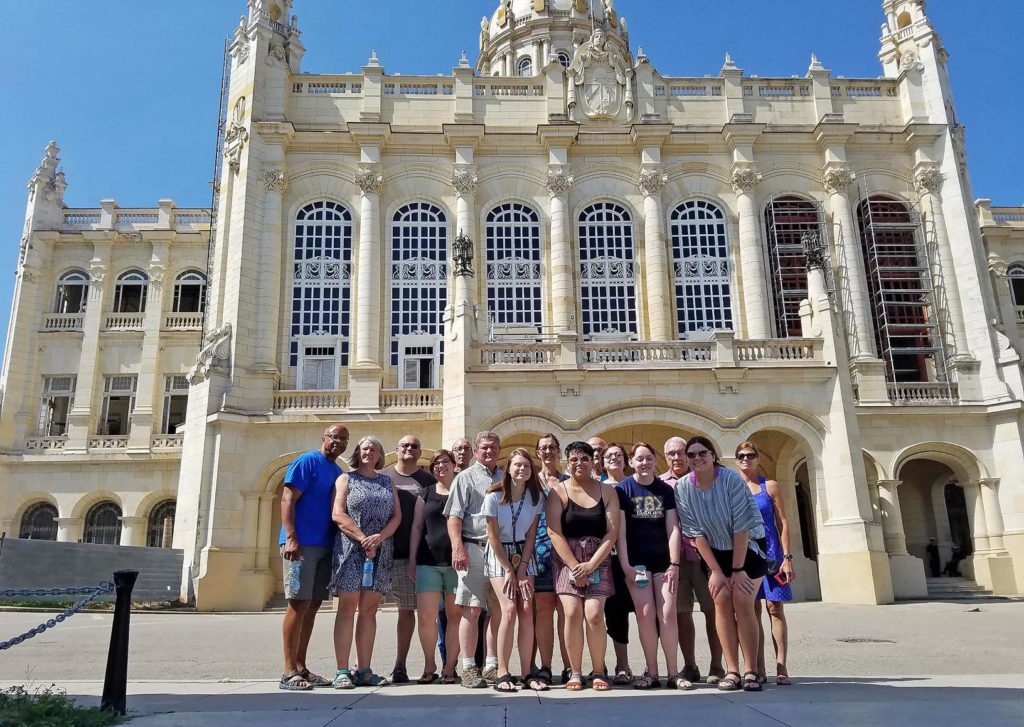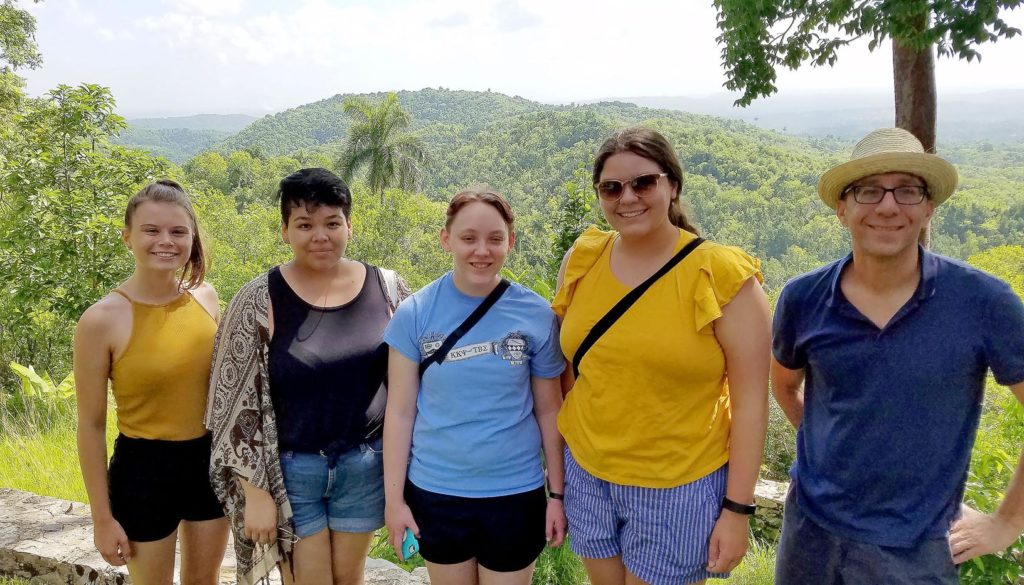
By TYLER ELLYSON
UNK Communications
KEARNEY – You’ve likely heard of its famous cigars and rum, listened to salsa music and seen photos of the classic vehicles rolling down streets lined with colorful, colonial-style architecture.
But you’ve probably never visited Cuba.
It’s a country that’s largely been off-limits to American tourists.
Although Cuba sits just 90 miles south of U.S. soil, the Caribbean’s largest island remains shrouded in mystery. Most of what Americans know about this communist nation comes from movies or media reports.
From an educational standpoint, there’s perhaps no better country to study.
“Our students can just jump on a plane and go to Mexico, Guatemala or pretty much anywhere else in the world, but they can’t do that with Cuba,” said William Aviles, a political science professor and department chair at the University of Nebraska at Kearney.

Aviles recently led a weeklong trip that took a group of 16 UNK students, faculty and community members to Cuba, which just two weeks prior was the target of new U.S.-imposed restrictions that ban travel options previously approved by the Obama administration, including cruises and educational programs booked after June 5.
What they discovered is a place much different than they imagined.
“The people surprised me a lot, just how friendly they were and how safe I felt in Cuba,” said Chloe Barkow, a UNK sophomore from Superior who had never traveled outside the U.S. before. “The way the media portrays Cuba is so different from what Cuba is actually like. There wasn’t a single moment when I felt like I would be in danger. All the people were extremely friendly.”
The complex relationship between the U.S. and Cuba made the trip particularly interesting for the UNK students, all political science majors who are also learning or studying Spanish.
Prior to their visit, the students participated in a three-week online class taught by Aviles that explored Cuban history and politics, including the 1959 socialist revolution led by Fidel Castro that overthrew the U.S.-backed government in Havana and created the current one-party, communist system formerly allied with the Soviet Union. U.S. sanctions intended to topple Castro and his regime impacted Cuba’s state-controlled economy over the next 50-plus years.
“It’s important that students have an understanding of the relationship between Cuba and the United States and the consequences of this embargo,” said Aviles, a Miami native with a special interest in Latin American politics.
This lesson is best learned by traveling to the country and speaking with the people who live there.
Audio Player“We like the idea of experiential learning to complement what students are doing in the classroom. To actually meet with Cubans and talk with them about what they’ve learned or how they feel about politics or economics is so important,” said Aviles, who led another UNK-sponsored trip to Cuba in 2013.
Last month’s trip, arranged through the nonprofit organization ProximityCuba, featured sightseeing, local cuisine, live music, traditional dancing and relaxation on the beach, as well as activities that took the education to another level.
The UNK group met with political activists, academics, artists and farmers, and visited places such as Revolution Square, the Museum of the Revolution, Hotel Nacional, National Literacy Campaign Museum, Callejon de Hamel and Las Terrazas, a small community and UNESCO biosphere reserve in the Sierra del Rosario mountains where Cuba’s earliest coffee plantations were located.
They also spoke with representatives from the Cuban Institute for Friendship with the Peoples, learned about Cuba’s health care, educational and economic systems and discussed current issues with community groups.
Audio Player“We’re a university and part of our academic mission is exposing our students, staff and faculty to the complexity and reality of the larger world,” said UNK associate political science professor Claude Louishomme, another member of the traveling party.
Louishomme was surprised by Cubans’ passionate support for the country’s communist system, though there are plenty of others who are frustrated by a government they view as repressive. Housing is expensive and in short supply there, and physicians, professors and other white-collar professionals are working as taxi drivers and tour guides because it’s a more lucrative career.
“One of the real challenges in Cuba is they can’t pay a lot of their professionals enough money to live a comfortable life,” Aviles said.
The UNK travelers said Cubans were excited to see Americans and desperate for an influx of outside money to boost the local economy.
“They believe that if more Americans knew more of the reality of their nation, that would be a good thing,” Louishomme said.
Audio PlayerBarkow, a global peace and security studies minor interested in a career in international relations, definitely had her eyes opened by the trip.
“This is something everybody should get to experience,” she said. “It completely changes your perspective.”
Aviles, who organized previous trips to Venezuela, Colombia, Peru and Mexico, hopes to return to Cuba with a new group of UNK students in the near future.
“I’m confident we can find an authorized travel category that would work,” he said.
The following UNK students, listed by hometown, took part in the Cuba trip:
Columbus – Mia Grant
Lexington – Cheily Arreola
Lincoln – Alexis Chapelle
Superior – Chloe Barkow